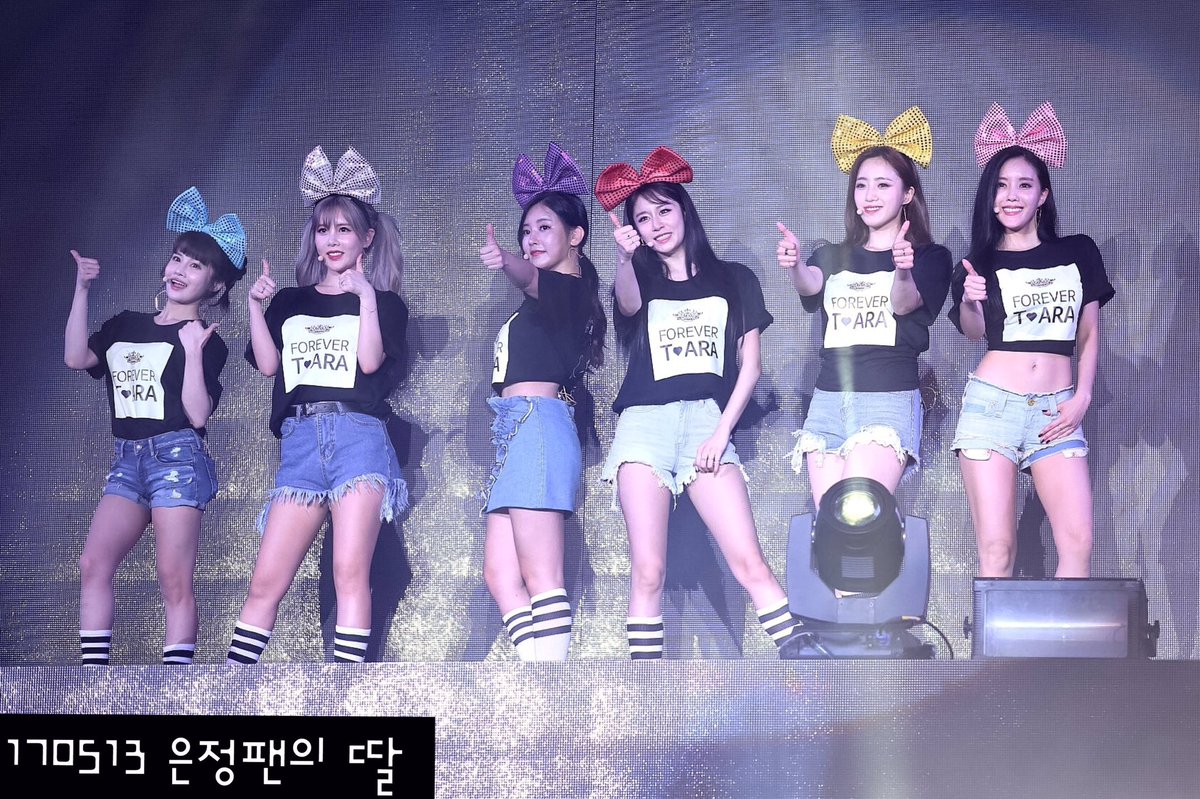
T-ara‘s trademark case over the name ‘T-ara’ with MBK Entertainment has made it to the World Trademark Review site, who has asked a couple of experts to weigh in on the dispute.
Talking to World Trademark Review, Yoon & Yang partner Ted Kwon and trademark attorney YoungJoo Song say that both parties have claims to the name – and it is not clear which side will prevail in this increasingly bitter legal dispute. “We assume that the T-ara music group argued in the information brief that the group members have legitimate rights over the T-ARA mark, and that the T-ARA mark is well-known among consumers as the source identifier of the T-ara music group,” they stated. “The examiner will look at evidence such as contracts between MBK Entertainment and the individual members, any information or materials about who created the music group name, and who contributed what for the success of the music group.” Another factor the examiner may consider, they suggest, is timing: “MBK filed four trademark applications (under Classes 3, 9, 25, and 41) on December 28 2017, and T-ara was already well-known, not only in Korea but also in other countries, as a K-pop group at the time when the applications were filed. If the examiner concludes that T-ARA could be perceived as the source identifier of a female music group composed of four members among Korean consumers when MBK Entertainment filed the four applications, the T-ARA music group may have better chances in this trademark dispute.” If the group fails, though, Kwon and Song say that the members still have options – but it will cost them. “Firstly, they can file oppositions against the applications to buy some time for negotiation, as the opposition period is about 8-10 months in Korea,” they state. “If that fails, they could perform as ‘T-ara’ if they were to get a license from MBK Entertainment.” Ultimately, the dispute is a result of the unique structure of the pop music industry in Korea, where management companies have strict control over the artists they discover and promote. These entertainment agencies nurture and train performers from an early age, and the cost and failure rate is extremely high. “Korean teenagers who wish to become K-pop stars sign up with entertainment companies, often when they are just elementary school students, and receive intensive training that can include living in the agencies’ dormitories. These companies select young performers from amongst the trainees, organise music groups, and provide ongoing support – including from songwriters, dance instructors, and makeup artists. It is said that more than one music group debuts every day in Korea and most disappear without drawing public attention,” the attorneys explain. “The peculiar and significant influence these companies hold over music performers has led to continuous trademark disputes when the stars leave for new agencies. However, as long as the current practice of developing, training, and promoting K-pop music groups continues, which requires an astronomical investment over a long period of time, then Korean entertainment companies will likely continue to use trademark rights as a mean to keep their K-pop stars from leaving for new management agencies.”
While I’ve had no problem pointing out MBK’s blatant mediaplay against T-ara, I’ve largely stayed out of the debate over the ‘T-ara’ trademark since I am honestly not familiar enough with trademark law to comment. However, this breakdown seems like a rational summation of the situation between the two parties. Honestly, if it comes down to both of them having decent cases, I’m always going to assume the company will win out over the artists in Korea.
 Asian Junkie Asian pop. Without discretion.
Asian Junkie Asian pop. Without discretion.